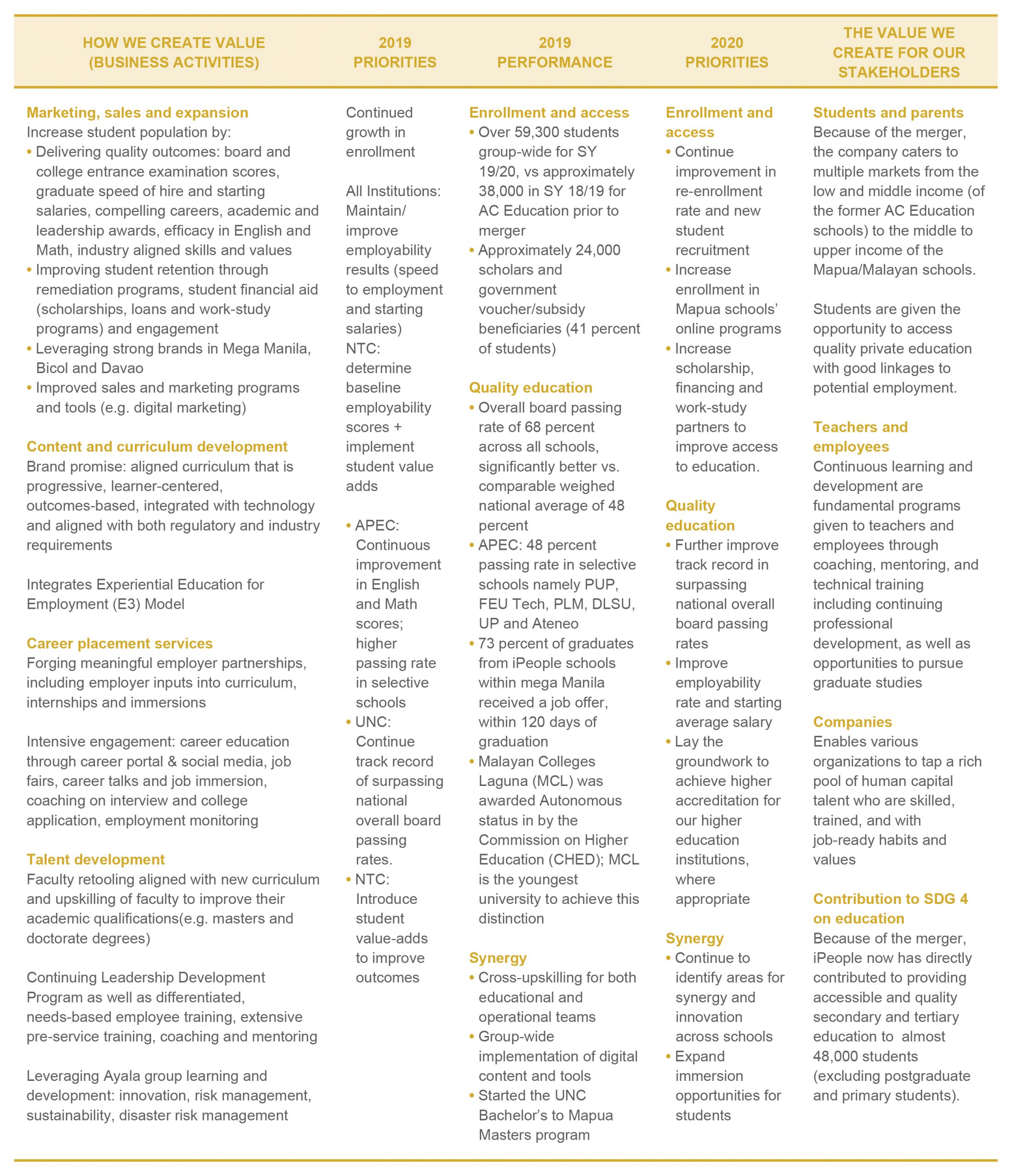WHO WE ARE
Following the merger between AC Education and iPeople in May 2019, iPeople has become the listed holding company for Ayala’s investments in education. The merger brought together seven schools in diverse socio-economic and geographic market segments across the nation, including the National Capital Region, the Calabarzon region, the Bicol region, and Mindanao.
A partnership between the Yuchengco Group of Companies and Ayala, iPeople aims to empower Filipino families by delivering accessible, quality education that enables significantly improved employability for our high school and college graduates. It is iPeople’s corporate vision to innovate education and research towards leading-edge outcomes for its students. This will be achieved through proprietary student value-add programs, systematic teacher training, professional management operations, and strong industry partnerships.
As a background, AC Education founded APEC (Affordable Private Education Centers) Schools in 2013 with one school site and 130 students. Since then, it has scaled up to become the largest chain of stand-alone affordable, private high schools, with 23 branches across Mega Manila and approximately 16,000 students. APEC offers Junior High School and Senior High School with an innovative and progressive approach to both learning and employability at an affordable price point.
In 2015, AC Education acquired University of Nueva Caceres, which provides basic and higher education to approximately 8,800 students at its campus in Naga City, Camarines Sur. Founded over 70 years ago, UNC is the oldest university and the largest private university in the Bicol region.
In 2018, AC Education acquired the National Teachers College. Founded over 90 years ago, NTC is the pioneering private institution for teacher education in the country, with approximately 12,700 students.
After the merger of iPeople and AC Education, Ayala’s investments in education expanded to include four new institutions namely: Mapua University, Malayan Colleges Laguna, Malayan Colleges Mindanao and Malayan High School of Science.











